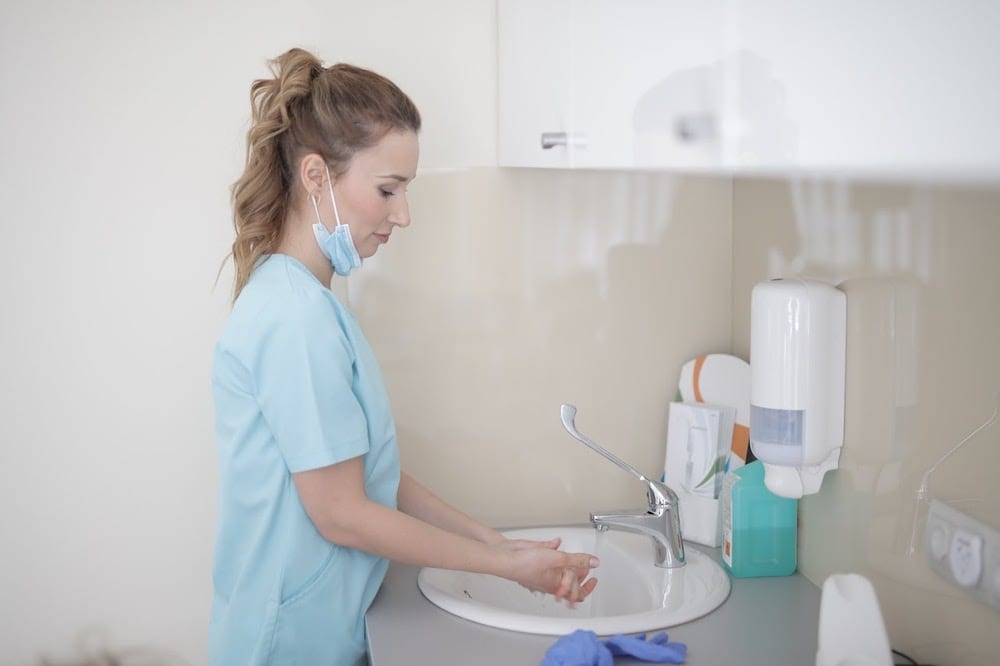CNA skills involve the methods used to ensure patients’ basic needs are met as they recover. CNAs must pass an exam before they are allowed to practice, meaning it is essential to study and master these skills.
Certified nursing assistants (CNA) fill the gap between patients and nurses by working closely with patients to improve care and quality of life in hospitals, nursing homes, long-term care facilities, and residential settings.
By working so closely with patients, CNAs gather vital information about their conditions, which they relay to their supervisors to help improve patients’ treatment.
If you are interested in learning more about CNA skills, which are the most crucial, and what other skills will be beneficial to you as a nurse, keep reading.
A Guide to Passing Your CNA Skills Exam
The CNA skills listed below are the key steps to passing the skills exam. Be sure to also research the requirements of your specific state, as they may vary. However, these are the basics of most CNA practices.
Step 1: Learning The Skills
A CNA learns important patient care skills from infection control through handwashing, catheter care, and changing a patient’s body position. To prepare for the CNA exam, these are the skills you will need to study and learn meticulously.
- Handwashing
- Ambulation with a gait belt
- Ambulation with a walker
- Backrub
- Oral hygiene
- Haircare
- Perform partial bath (face, arm, hand, and underarm)
- Dress patient
- Measure blood pressure
- Measure body temperature
- Measure and record pulse
- Measure and record respiration
- Bedpan and urinary output
- Catheter care
- Emptying urinary drainage bag
- Feeding
- Denture care
- Mouth care for an unconscious patient
- Hand and nail care
- Isolation gown and gloves
- Changing an occupied bed
- Perineal care: female
- Perineal care: male
- Dressing a resident with a weak arm
- Applying elastic support stockings
- Body positions: supine, prone, lateral, Sim’s, and Fowler’s
- Range of motion exercises (shoulder)
- Range of motion exercises (elbow, wrist)
- Range of motion exercises (hip, knee, ankle)
Step 2: CNA Skills Learning Resources
The best way to practice these skills is by using the learning resources provided in your CNA training. For a breakdown of the steps mentioned above, Arizona Mock Skills shows you clearly how to do each step. You should check your specific state requirements, too, to make sure to ace the test in your area.
If you are more of a visual learner, there are some great online resources that will help you practice. For example, The Healthcare Institute’s YouTube channel has excellent videos on each skill so you can make sure you are executing them correctly. These videos are a great first step in your learning. You can see what the test proctors will expect and begin practicing them on your own.
If you are interested in becoming a CNA for the American Red Cross, see their website for their classes, training, and details on the Red Cross CNA exam.
Step 3: Practice, Practice, Practice
There are many steps to remember in each skill, so taking CNA practice tests during your training program is a good idea. Do not worry if you do not pass the exam the first time, as it is notoriously difficult. You can also take free, certified, online practice tests for the written exam from resources such as CNA Plus Academy.
To practice for the CNA skills test, you should print out a checklist of skills and the steps needed in each. Then, practice with friends, or film yourself on your phone to check that you went through each required step.
Step 4: The Exam
The CNA exam is separated into two sections, a written examination and a clinical skills test. In the written exam, you have 90 minutes to complete 60 multiple-choice questions. The clinical skills test requires you to perform CNA tasks in front of an examiner, comprising five duties in 30 minutes.
During your skills test, remember to present yourself as a certified nursing assistant. Also, always wash your hands before and after procedures, and treat patients with courtesy and respect. At the start of the exam, you will receive the list of skills that you need to demonstrate. Take a few deep breaths and focus on performing the skills to perfection.
If you’re unfamiliar with the equipment that is in the testing room, be sure to ask your examiner questions before the exam begins. Once the test has started, you will not be allowed to ask questions.
Additional CNA Skills

Below are some additional soft skills and professional skills that are also important to have as a nursing aide.
- Interpersonal skills
- Written and verbal communication
- Cultural awareness
- Compassion and empathy
- Observational skills
- Medical terminology knowledge
- Infection control
- Monitoring vital signs
- Customer service skills
- Radial pulse measurement
- Organizational skills
- Teamwork skills
- Health and safety skills
- Personal hygiene
- Time management
Conclusion: Important Skills for Any CNA

If you are wondering if you will enjoy working as a CNA, take some time to consider if you want to learn about the field of medicine and work alongside doctors and nurses to care for patients.
If so, remember that you will be working with a team to monitor patients, clean them, and make their hospital stay comfortable as they recover their health.
According to the US Bureau of Labor Statistics, a nursing assistant earns a median wage of $29,640, a reasonable wage if you think you would enjoy a job that is a mixture of medical care, cleanliness, and monitoring and recording patient data.
We hope this article has helped you better understand the skills that go into becoming a nursing assistant, and that this step by step guide will help you move closer to your career goals.
About us: Career Karma is a platform designed to help job seekers find, research, and connect with job training programs to advance their careers. Learn about the CK publication.



